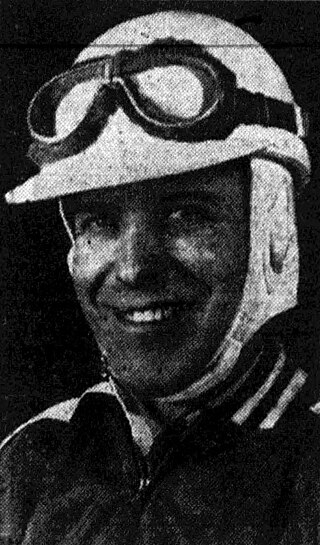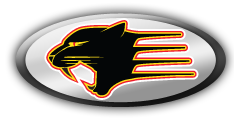
The Coca-Cola 600, originally the World 600, is an annual 600-mile (970 km) NASCAR Cup Series points race held at the Charlotte Motor Speedway in Concord, North Carolina, on a Sunday during Memorial Day weekend. The first race, held in 1960, was also the first one held at Charlotte Motor Speedway. It is the longest race on NASCAR's schedule. It is unique for having track conditions that change throughout the race due to the race having a day to night transition,. The race starts around 6:20 p.m. when the track is bathed in sunlight for about the first third of the race. Roughly the second third happens at dusk, and about the final third of the race occurs at night under the lights.

The 37th International 500-Mile Sweepstakes was held at the Indianapolis Motor Speedway on Saturday, May 30, 1953. The event was part of the 1953 AAA National Championship, and was race 2 of 9 in the 1953 World Championship of Drivers. Bill Vukovich, after falling just short a year before, dominated the race, leading 195 of the 200 laps. Vukovich won the first of two consecutive "500" victories, finishing more than three minutes ahead of second place Art Cross.

The 39th International 500-Mile Sweepstakes was held at the Indianapolis Motor Speedway on Monday, May 30, 1955. The event was race 1 of 11 of the 1955 AAA National Championship Trail and was race 3 of 7 in the 1955 World Championship of Drivers.

Melvin Eugene "Tony" Bettenhausen was an American racing driver known primarily for his open-wheel career. He twice won the National Championship, doing so in 1951 and 1958. He also competed in stock cars, winning under AAA and USAC sanction.

John James McGrath was an American racecar driver. McGrath died in an accident at Bobby Ball Memorial, he lost control of his car at Turn 3, crashed and flipped, dying instantly.

William John "Bill" Vukovich was an American racing driver. He won the 1953 and 1954 Indianapolis 500, plus two more American Automobile Association National Championship races, and died while leading the 1955 Indianapolis 500.
Ed Elisian was an American racecar driver, mainly competing in the National Championship. He died in a crash at the Milwaukee Mile.

Leland Wallard was an American racing driver. After a slow start to his career, the unheralded Wallard scored a "Cinderella" victory, authoring a dominating performance in the 1951 Indianapolis 500. Days later, Wallard's career ended as he suffered severe burns when his car caught fire during a promotional event.

Gary Bettenhausen was an American midget car driver. He was the winner the 1967 and 1970 Turkey Night Grand Prix, the 1972 Astro Grand Prix, and the 1976 Hut Hundred.
Tony Lee Bettenhausen Jr. was a Champ Car team owner and driver who died in a 2000 plane crash. He was the son of former 14-time Indianapolis 500 competitor Tony Bettenhausen and the brother of 21-time Indy 500 racer Gary Bettenhausen. Another brother, Merle Bettenhausen, was critically injured in his only Indy Car start.

Panther Racing was an American open wheel auto racing team. It was one of the oldest continually operating teams in the IndyCar Series.

Hemelgarn Racing is an American auto racing team owned by Ron Hemelgarn. The team debuted in 1985, and competed in the CART and Indy Racing League ranks until the team originally shut down in 2010. The team returned to competition in 2015, and currently competes full-time in the USAC Silver Crown Series with driver Justin Grant. Grant won the 2020 championship for the team.
The Curb Agajanian Performance Group is an American motorsports team, currently competing as a co-entrant in IndyCar and IMSA. It is owned by record executive Mike Curb and racing personality Cary Agajanian; son of the late J. C. Agajanian, a race promoter and race car owner. It has fielded an IndyCar entry or co-entry in various races since 2001. Curb also was involved with NASCAR in both the Xfinity Series and Sprint Cup Series, owning Curb Racing from 1984 to 2011. Curb had several business partners in the NASCAR operation over the years, including Agajanian from 1998 to 2006.

The 64th 500 Mile International Sweepstakes was held at the Indianapolis Motor Speedway in Speedway, Indiana on Sunday, May 25, 1980. Johnny Rutherford won the pole position, led 118 laps, and won the race by a commanding 29.92 second margin. After failing to finish the race the year before, Jim Hall's radical new Chaparral 2K ground effects chassis was a heavy favorite entering the month, and drove a flawless race. Rutherford, the winner in 1974 and 1976, became the sixth driver to win the Indy 500 three times.

The 72nd Indianapolis 500 was held at the Indianapolis Motor Speedway in Speedway, Indiana, on Sunday May 29, 1988. Team Penske dominated the month, sweeping the top three starting positions with Rick Mears winning the pole position, Danny Sullivan at the center of the front row, and Al Unser, Sr. on the outside. Mears set a new track record, becoming the first driver to break the 220 mph barrier in time trials. On race day, the three Penske teammates proceeded to lead 192 of the 200 laps, with Rick Mears taking the checkered flag, his third-career Indy 500 victory. The race represented the milestone 50th victory in Championship car racing for owner Roger Penske and Penske Racing.
Jimmie Earl McElreath was an American open-wheel racing driver, known for competing in the USAC Championship car series. He won the inaugural California 500 in 1970, driving a spare car owned by A. J. Foyt.
The 1981 CART PPG Indy Car World Series season, the third in the CART era of U.S. open-wheel racing, consisted of 11 races, beginning in Avondale, Arizona on March 22 and concluding at the same location on October 31. The PPG Indy Car World Series Drivers' Champion was Rick Mears despite missing Round 2 at Milwaukee due to injuries sustained in the Indianapolis 500. Rookie of the Year was Bob Lazier. After the disagreement with the USAC during the previous season, the 65th Indianapolis 500 was not part of the Series, however no competing race was scheduled and most CART teams and drivers did take part.

Double Duty is an American auto racing term used to describe one of the most difficult feats in motorsport: in a single day, competing in both the Indianapolis 500 IndyCar Series race at Indianapolis Motor Speedway and the Coca-Cola 600 NASCAR Cup Series race at Charlotte Motor Speedway.

The Indianapolis Motor Speedway Museum is an automotive museum on the grounds of the Indianapolis Motor Speedway in Speedway, Indiana, United States, which houses the Indianapolis Motor Speedway Hall of Fame. It is intrinsically linked to the Indianapolis 500 and Brickyard 400, but it also includes exhibits reflecting other forms of motorsports, passenger cars, and general automotive history. In 2006, it celebrated its 50th anniversary. The museum foundation possesses several former Indianapolis 500 winning cars, and pace cars, and they are regularly rotated onto the display floor exhibits.

Lindsey Hopkins Sr. was an American businessman and philanthropist. He was both a major stockholder and a director of the Coca-Cola Company. In addition, he was a director at The Sperry Corp., North American Aviation, the Reynolds Metal Company, and several banks and insurance companies. His Metropolitan Miami real estate included business and hotel properties in Miami, Coral Gables, and Miami Beach.


















